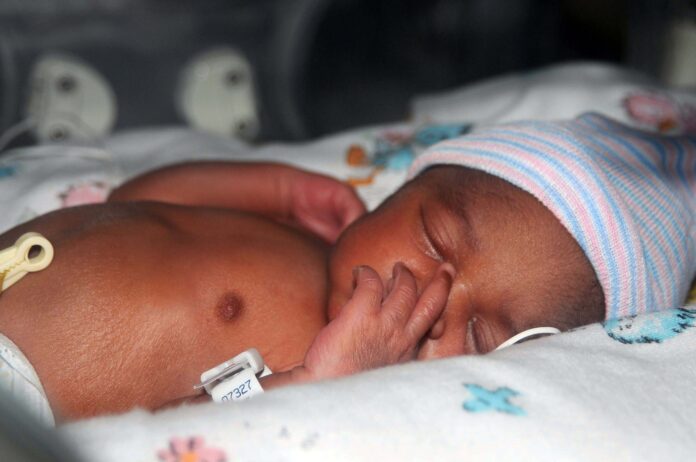In the 1990s, when movies from Ghana were not given to lewdness, vulgarities, obscenities, and violence, we learned didactic lessons from what we watched on GTV.
Certainly, those were the days when the state had firm control over media content. But as part of the repertoires of neo-liberalism since the 1980s, the media space is open to all kinds of moral degeneration.
Globally, since the 1960s, the secularization of morality, supported by all the “post” theories, has thrown the world out of its moral compass. The consequence is what we are fed within movies.
But as l started, in the 1990s, one popular movie that captured my imagination and those of my childhood friends was one that featured a case of stealing of babies from our hospitals.
Stealing of babies that was becoming a social menace was featured in a 1991 movie called “Baby Thief”. It was in this movie that John Dumelo was featured as a toddler who was stolen.
Since the 1990s, the impression l have had is that we are not out of the woods yet, in terms of overcoming this social canker. Just a few days ago, we were fed with the news of a few doctors and nurses who conspire with the public to trade in babies.
When the news broke, most of us were justifiably enraged. This was/is precisely because such an act runs against our values.
But our anger obscured the complicity of all of us. Since expressing anger is easy, we hardly have been sober in analysing the causes of what we appear to dislike.
I daresay that the issue of stealing of babies is a constitutive reflection of our Ghanaian social architecture.
In Ghana, it is an unwritten rule that everyone is expected to marry. If you don’t marry at a certain age, regardless of your lived realities, you become the subject of gossip.
Pressure, explicit and implicit, will be mounted on you. Those who suffer the most are our sisters. All forms of insinuations would be directed at them.
When we marry, the next thing is for us to have children. Again, the pressure begins to mount usually three months after marriage. The public begins to monitor the woman whether, after three months of marriage, she has started showing some of the common symptoms of pregnancy.
In fact, in many cases, a friend who misses another friend’s marriage ceremony will provide solace with the statement, “Don’t worry, l look forward to the naming ceremony.” While this may not necessarily be bad, it brings pressure to bear on a couple. Especially, as l said, after three months of “no signs of pregnancy”, people begin to conjecture and give all ill-intended permutations.
As it were, it is always the woman who is responsible for the childlessness. She becomes the subject of a mixture of things: pity, gossip, suspicion, stigma, labels, and insults.
In some cultures and religion, the man will be advised to get another wife. Since this sometimes smacks of androcentrism, l have sarcastically asked whether if the man is the reason for the childlessness, the woman would be advised to get an additional husband.
But in all of this, tension begins to mount. Even if God blesses the couple with a child, the next question after two years is: when are we seeing the next child?
Usually, this question is asked as if the couple are baby producing machines. It is also as if once unprotected sex happens, children must follow. It is to a large extent true that the outcome of unprotected heterosexual sex (consort) between two married persons would be procreation.
But in reality, it is not always the case. Sometimes, the issue may not be a medical condition. It may not be the usual claim of witchcraft accusations. It may not even be because of anything known – empirically and spiritually.
In many cases (and in my Calvinistic understanding, all cases), it may be an act of God. If we believe that children are a heritage from God (cf. 127:3), then it logically follows that it is God who gives babies, not necessarily sex. This is exemplified in the lives of Sarah, Rachel, Hannah, and Elizabeth.
But l understand the pressure that childless couples go through. The point is that in our part of the world, we invest our future in our children. So, to be childless is similar to having a bleak future. But must this be the case? How come in other jurisdictions, childless is not necessarily a challenge? How come in the so-named developed economy, most people don’t even think about children and yet live “normal” lives, even in their old age?
The answer obviously is in what Emile Durkheim referred to as functional differential. The creativity in producing an alternative to issues of life. For example, if l want to have children because of my future, can there be an alternative whereby l may not have my own biological children (as genitor) and yet live a fulfilled life (as a pater)?
Certainly, the answer is a resounding yes. This is because many children are begging for parents, since it is easier for parents to have children than children to have parents. There are many families in need of basic assistance to raise their children.
There are also insurance policies to secure one’s future. One can equally invest in what Robert Putnam referred to as social capital. In the end, there is no need to strangulate a childless couple. It is also needless to indict them.
But in Ghana, we have created a type of identity that is based on social achievement. In this case, your status is raised if you have children. For example, if a woman has a child, she loses her name to her child’s – this is known in sociolinguistic anthropology as tecknonym. So, a woman with a son called Kofi will be called, “Kofi Maame” among the Akan.
In all this, we create a social space of competition where people are on the lookout to count the number of children married persons have. This competition informed a typical indigenous Akan man’s prayer that, “God, let me not go blind in the morning, afternoon, and evening.” In this prayer, the petitioner’s use of blindness means impotence. So, he is praying to God against childlessness.
Unfortunately, after we create unnecessary competitive social space, we do not provide any moral foundation. And since morality is usually let loose in a competitive space, anything happens: fair is foul, foul is fair (to quote Shakespeare).
Is it any wonder that, while not supporting baby thieves, we are beset with children missing from our hospitals – l mean children being stolen? Until we resolve our own social puzzles, l doubt whether we will ever succeed in the fight against this social challenge.
I conclude that if you believe in God who is sovereign, and indeed He is, why don’t you trust Him with your concerns? Why don’t you trust Him that it is His counsel about you that will stand?
Children do not necessarily secure our future, it is God who does. Ultimately, happiness is not based on biological parenthood, it is based on the eternal security of our salvation.
Children are a gift from God and we don’t force the Giver to give.
Satyagraha
Prempeh Charles (prempehgideon@yahoo.com), African University College of Communications, Accra









































